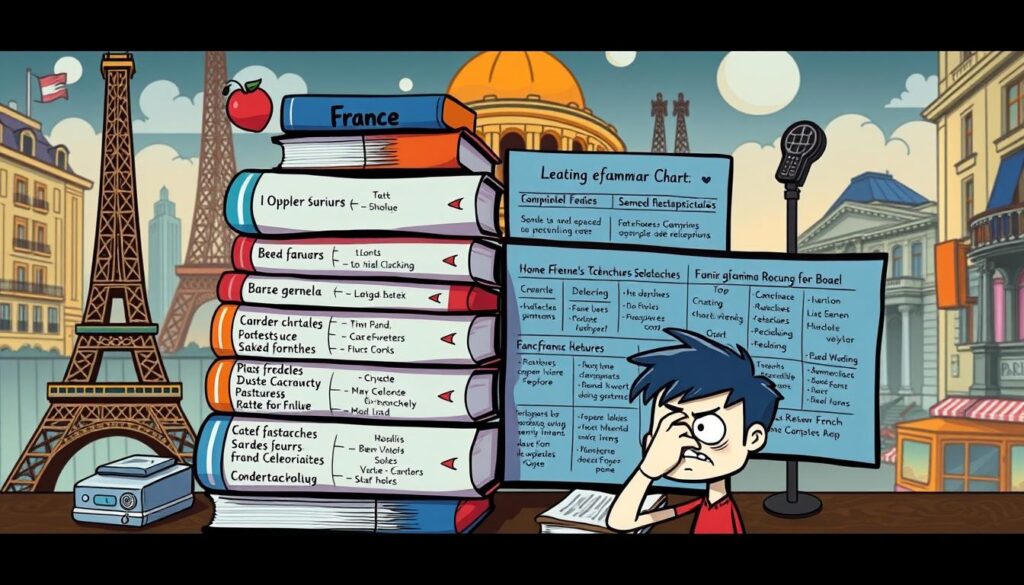Thinking about joining the Canadian forces? You might ask, “do you need to know French to join the Canadian forces?” The answer isn’t simple. French is one of Canada’s official languages. Knowing it can help in bilingual roles. But, you just need to be good in English or French to join.
In the Canadian public service, jobs are marked as English, French, or bilingual. For bilingual jobs, you’re tested in both languages. You’ll be graded from A to C on reading, writing, and speaking. The highest levels might need a Code P level of fluency.
Want to get better at French? Wondering how long it takes? Check out this site for info. Also, jobs can be imperative or non-imperative for language skills. Imperative means you need both languages now. Non-imperative means you can learn on the job, usually paid for by the government.
Foreign nationals must become Canadian citizens to join. You’ll show you’re fluent in English or French. Plus, there’s a test on Canadian history. That’s your ticket into the Canadian Armed Forces.
Understanding the Official Language Requirements for Canadian Forces
The official language requirements for Canadian forces are closely linked to military job duties. This connection is important as it shapes how things are run within the Canadian Armed Forces (CAF). It’s key for anyone looking to join or already in the military, showing the importance of speaking both English and French.
Looking into the bilingual requirements for Canadian forces, it’s clear that language skills can shape a soldier’s career. Being bilingual is checked through formal tests. The Public Service Commission’s Second Language Evaluation (SLE) tests these skills at three levels: elementary (Level A), intermediate (Level B), and advanced (Level C). This ensures soldiers can handle the language demands of their roles.
| Language Profile | Required for Position | Required Training Hours |
|---|---|---|
| A (Elementary) | Initial Positions | 600 |
| B (Intermediate) | Advanced Non-Commissioned | 1230 |
| C (Advanced) | Command and Staff Roles | 1800-2400 |
The Canadian military language policy manages role assignment based on language skills and promotes language training and testing. It requires putting testing outcomes into the Career Development Administrative (CDA) results database and the Human Resource Management System (HRMS). This makes sure every member’s language skills are up to date during their career.
For members posted outside Canada (OUTCAN), the language policy allows them to take the SLE while overseas. This ensures they keep up with the Canadian military language policy no matter where they are. This shows the CAF’s dedication to high language standards worldwide. So, meeting the bilingual requirements affects your job and how well operations work globally.
The bilingual requirements for Canadian forces highlight the need to speak both English and French well. This approach shows how the Canadian forces see Canada’s two main languages as a key strength in their defence work.
Do You Need to Know French to Join the Canadian Forces?
Many wonder if you need French to join the Canadian Armed Forces (CAF). Bilingualism in Canadian armed forces matters but depends on the job and the region. It’s not the same for every position.
The Role of Bilingualism in Military Positions
Knowing both English and French helps a lot in the CAF, especially for jobs needing communication with different areas. Jobs that require both languages often come with more responsibility. They involve working with multilingual communities and international partners.
Language Profiles and What They Mean for Recruits
If you don’t know French, understanding the language profiles for positions is key. These profiles tell if you need both languages when you start or if you can learn later. Jobs that need immediate bilingual skills have a CBC/CBC profile. This means you have to be very good in both languages.
Imperative vs Non-Imperative Staffing for Bilingual Positions
The CAF uses two methods to fill bilingual jobs: imperative and non-imperative staffing. For imperative staffing, you need to meet bilingual requirements right away. Non-imperative staffing lets you learn French after you join. This approach helps the CAF be more inclusive and opens the door for more people.
If you’re thinking about improving your French before or after joining, many resources and programs are there to help. The government funds them. The Professional Standards Council’s Second Language Evaluation (SLE) tests your level from A (basic) to C (advanced).
The CAF offers lots of benefits besides language training. These include good pay, a great benefits package, and chances for growth. Whether it’s helping with humanitarian missions or protecting the country, the Canadian Forces offer a fulfilling career. It’s perfect for those who want to serve and seek adventure.
Overall, knowing French is helpful but not mandatory to join the Canadian forces. There are many ways to help you meet the bilingual needs if required.
Canadian Forces Language Policy and Proficiency Testing
Understanding the Canadian forces language policy is key for those joining or moving up in the military. This policy ensures members can speak both of Canada’s official languages well. It mirrors Canada’s bilingual nature.
Breaking Down the Canadian Forces Language Policy
The policy sorts positions by language needs. It demands English and French skills at different levels. Through tests and training, it strengthens how the forces work in various language settings. This bilingual focus helps in Canada and with partners worldwide.
Language Proficiency Levels and their Impact on Recruitment
Prospective recruits must know how important their language proficiency levels are. These levels go from beginner (A) to advanced (C). They play a big part in what positions applicants fit into. Excelling in languages can open more doors, especially where strong bilingual skills are needed.
Details on Language Proficiency Testing for the Military
The military uses a detailed language proficiency test. It checks your reading, writing, and speaking. The test matches the proficiency needed for different roles. Doing well can greatly help your military career.
There’s also a big push for language skills shown in initiatives like the official language review. This aims to improve second language education. Such efforts keep Canada’s military strong and bilingual.
| Resource | Description | Target Audience |
|---|---|---|
| GCcampus | Offers free, self-paced language courses. | DND employees, CAF members |
| Mauril | Utilizes CBC and Radio-Canada content for language immersion. | General public seeking practical language learning |
| Voila Learning | Interactive, game-style learning platform for children. | Young learners, school-age children |
Enrollment Requirements for Non-Citizens and Language Considerations
If you’re thinking about joining the Canadian Armed Forces (CAF) but aren’t a citizen, you need to know a few things. It’s important to understand both permanent resident enrollment in Canadian armed forces and Canadian citizenship requirements for military service. This opportunity helps skilled people from abroad get closer to Canadian citizenship.
To join the Canadian Armed Forces as a non-citizen, it’s important to meet the Canadian citizenship requirements for military service. The CAF values the efforts of permanent residents (PRs). They offer faster citizenship processing as a thank you for wanting to serve Canada.
The Path to Joining the Canadian Armed Forces as a Permanent Resident
For permanent residents, you need to have lived in Canada for at least 1,095 days over the past 5 years. The CAF also counts half a day for every day you’ve spent as a temporary resident.
To become a Canadian citizen, you must speak English or French well. You should be at level 4 of the Canadian Language Benchmarks (CLB) or Niveaux de compétence linguistique canadien (NCLC). If you’re between 18 and 54 years old, you also need to pass a citizenship test. This test checks your understanding of Canadian citizenship, including rights and duties.
Understanding the journey in sectors like the CAF is key, including overcoming challenges in law enforcement. The CAF examines each application one by one. This means everyone gets a fair chance to show they’re dedicated and competent.
| Requirement | Details |
|---|---|
| Physical Presence | Permanent residents must have been physically present in Canada for at least 1,095 days during the 5 years before the citizenship application. |
| Language Proficiency | Applicants must demonstrate language skills in English or French equivalent to level 4 CLB/NCLC. |
| Citizenship Test | Required for applicants aged 18 to 54, covering Canadian rights and responsibilities. |
| Application Review | Each application is considered on a case-by-case basis, ensuring a fair evaluation. |
Thinking about joining the Canadian Armed Forces as a non-citizen? Remember, it’s all about commitment. Be ready to meet the language and residency needs. Also, take your application seriously. With dedication, you can navigate this path successfully.
Canadian Military’s Inclusivity: Bilingual Requirements and Cultural Integration
The Canadian military is deeply committed to inclusivity. This involves more than just acknowledging two official languages. It’s about mirroring Canada’s diverse culture in the armed forces. The Canadian Armed Forces (CAF) create a space where all kinds of skills and experiences are valued. Their strategy to recruit includes permanent residents who meet Canadian citizenship standards. This inclusive approach helps build a team ready for action and eases cultural blending.
Recent studies, like those by the Canadian Forces College, show how important diversity is in the military. Programs like Bold Eagle and Carcajou show the effort to bring different cultural views into the military. The CAF Indigenous Entry Program and the Indigenous Leadership Opportunity Year also show deep commitment to cultural blending. These efforts are informed, heartfelt, and continuous.
If you’re thinking of learning French to join the CAF, resources like LanguageYard can help. Since 2002, the Employment Equity Act and insights from experts like Edgar Schein have guided the CAF. They value every aspect of culture. Whether you’re a permanent resident or a citizen, the CAF offers a chance to grow personally and professionally. It’s a genuinely inclusive military community in Canada.


